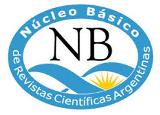The radical democracy of the Mid Class? Memories from a protest form
Keywords:
Neighborhood assembles, mid Class, participative democracy, December of 2001, social protestAbstract
At eight years since the crisis of the 2001, this article has the purpose of doing a lecture about the protest’s happenings through of an analysis neighborhood assembles. According to this, it examines some discursive practices relatives to that what has been into of one of this neighborhood assemble in Bernal, Buenos Aires. Tacking in consideration the whole potential of the manifestations presuppose a shared interaction of the diseases –in front of the feeling that allowed the lost of the individual economies-, we are going to analyze and describe the ¨shared¨ according injustices, reposing on the supposed, in which the subjects as their resources, spaces, and methods of acting owned, by the way a relative grade of dislocation, in what concerns to the Ernesto Laclau’s concept of the radical, libertarian, and plural democracy. For that, we ask ourselves: What was the conflict in the political action practiced by the neighborhood assembles?Downloads
Downloads
How to Cite
Issue
Section
License
The acceptance of an original by the journal implies the non-exclusive transfer of the economic rights of the authors in favor of the editor, who allows reuse, after editing (postprint), under a Creative Commons Attribution License -NonCommercial-ShareAlike 4.0 International (CC BY-NC-SA 4.0)
In accordance with these terms, the material can be shared (copied and redistributed in any medium or format) and adapted (remixed, transformed and created from the material another work), provided that a) the authorship and original source of its publication (magazine and URL of the work), b) is not used for commercial purposes and c) the same license terms are maintained.
The transfer of non-exclusive rights implies that after its publication (postprint) in Cuadernos de H ideas the authors can publish their work in any language, medium and format; in such cases, it is requested that it be stated that the material was originally published in this journal.
Such assignment also implies the authorization of the authors for the work to be harvested by SEDICI, the institutional repository of the National University of La Plata, and be disseminated in the databases that the editorial team considers appropriate for increase the visibility of the publication and its authors.
Likewise, the journal encourages the authors so that after their publication in Cuadernos de H ideas they deposit their productions in other institutional and thematic repositories, under the principle that offering society scientific and academic production without restrictions contributes to a greater exchange of global knowledge.










.png)

























